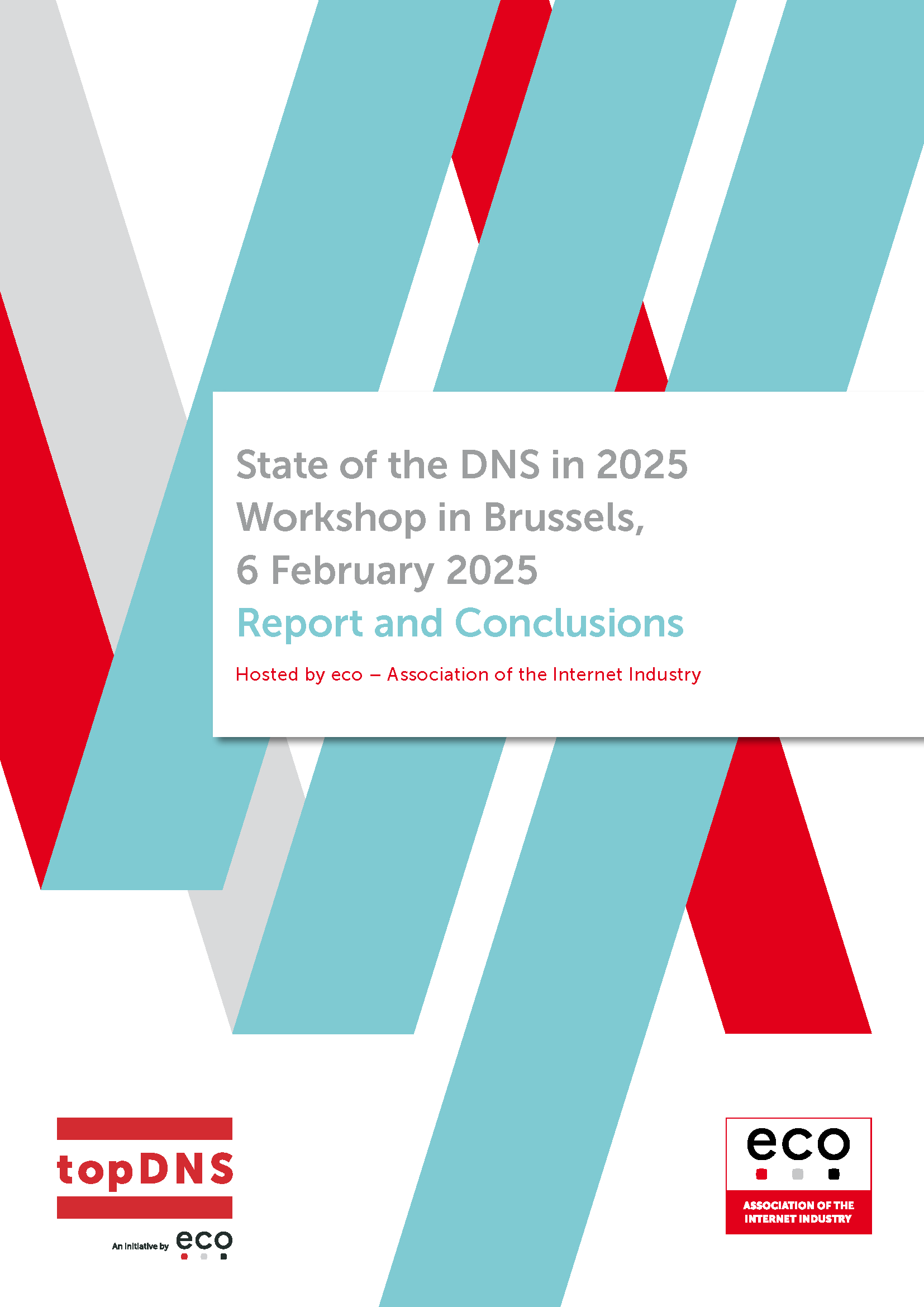The Domain Name System (DNS) is a fundamental component of the Internet infrastructure – and, at the same time, it can be an entry point for abuse. Malware, phishing or pharming – there are numerous ways in which criminals can exploit the DNS for their own purposes. For many years, eco – Association of the Internet Industry has been committed to a secure DNS ecosystem, such as with the topDNS initiative or within the framework of the Internet Corporation for Assigned Names and Numbers (ICANN). The latest report “State of the DNS in 2025” from a workshop with representatives of the European Union and the Internet industry is now available.
As part of the workshop, current developments in the DNS were discussed, grouped under the following categories:
- Contract changes for ICANN-accredited registries and registrars – is there a measurable impact?
- Automated vs. manual processing of abuse reports
- Cultural change within the industry
- Establishment of a forum for Internet infrastructure operators to coordinate efforts to combat abuse
- Closer cooperation between all Internet infrastructure operators along the value chain
Key findings from the workshop:
- No silver bullet: To effectively combat online abuse, a holistic approach is required that combines incentives, consistent enforcement of policies and better coordination.
- Industry collaboration is crucial: The success of measures against online abuse depends heavily on the joint commitment of all relevant stakeholders — from registries and registrars to Internet service providers and regulatory authorities.
- Outlook: To improve abuse prevention and mitigation in the long term, more intensive research, standardised enforcement mechanisms and clearly structured workflows are needed.
- Shared responsibility: Combating online abuse should be understood as a task for society as a whole – not just as a challenge for individual companies. Given the scale of the problem, traditional law enforcement agencies are reaching their limits, which requires greater involvement of the private sector.
The report contains key findings and recommended for action from the workshop. It can be downloaded here free of charge.

